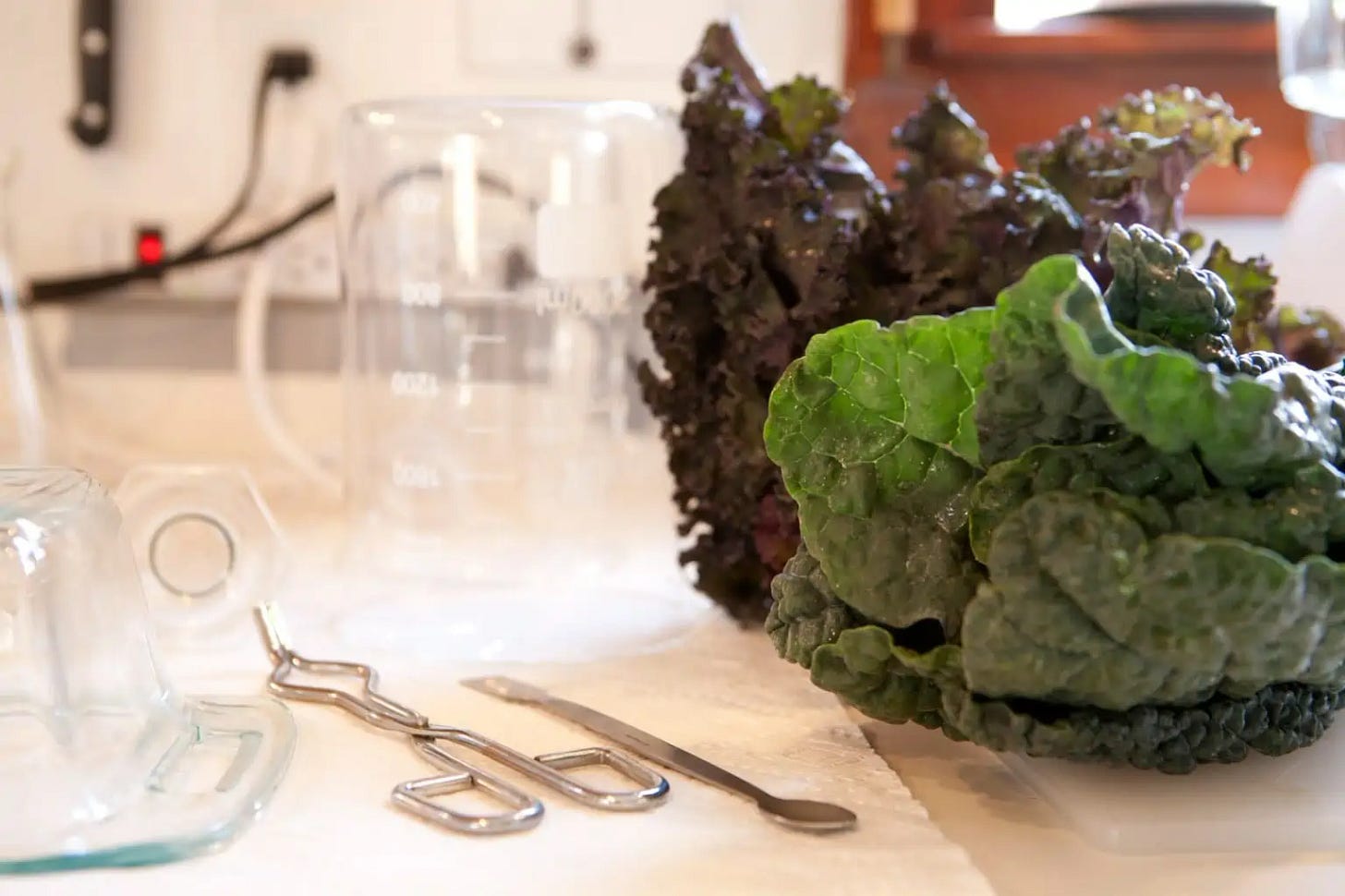The Vegetable Detective
Kale and other cruciferous vegetables, especially the organic versions, are some of the healthiest foods you can eat, right? After extensive testing, at least one molecular biologist isn't so sure.
Dear Friends,
Back in 2015, at the peak of the “kale craze,” (and incidentally, our first year of publication), I profiled Ernie Hubbard, a molecular biologist in Marin County, CA. His research was showing potentially dangerous levels of heavy metals in some cruciferous vegetables, including kale—the “queen of greens." And shockingly, these compounds were showing up most often in organic varieties.
This week, we bring you a new audio version of “The Vegetable Detective,” written by yours truly and narrated by Göran Norquist. As with all of our podcasts, you can download or play it directly from our site, as well as from a number of popular streaming services, including Apple Podcasts, Spotify, and Google Podcasts. You can also read the original story here—as well as some updates to the original reporting in “The Vegetable Detective, Take Two.”
This story marks the end of our Spring Issue on “The Soil Saviors.” Next Friday, we’ll move on to Summer with a new collection of offerings that highlight “The Craft of Resilience.”
Each Friday, we release a feature story, short article, mini-documentary, or podcast related to some aspect of our theme. We also try to offer a few stories on other topics each quarter so that there's something for everyone — currently free of charge, and always free of ads. So please, stay tuned.
In the meantime, I hope you'll always find something intriguing to read — or watch, or listen to — within our pages. We welcome your thoughts via email, as well as on Facebook, Instagram, or Twitter. Thank you for reading and sharing our stories, for donating to our cause when you can, and for being such a loyal part of the Craftsmanship community.
Sincerely,
Todd Oppenheimer
Editor & Publisher, Craftsmanship Quarterly
Spring 2022: The Soil Saviors
One of biggest influences on our daily lives arises from a fundamental paradox: As the Earth's population continues to grow, its natural resources shrink. Foremost among our dwindling resources is fresh water, and the main resource that water feeds: the world's arable lands. With each passing year, we humans need to get more efficient — and more creative — with how we grow our food and tend the land. While industrial agriculturists have long tried to do just that, their methods have nearly killed the soil we all depend on.
Fortunately, a brighter path has opened up. From backyard composting and no-till farming to "carbon sequestration," our Spring issue covers some of the innovators who have arisen to literally save our soil, feed the world, and even slow climate change.







Hello Substack subscribers: Oops! We spoke too soon... apparently there was an issue with dead air in the original audio file of "The Vegetable Detective," which we released this morning. It has now been replaced and the audio story is available to play on our site, as well as the Big 3 streaming platforms (Apple, Spotify, and Google)—with more channels coming shortly. Our sincere apologies for the glitch; we hope you enjoy the story!